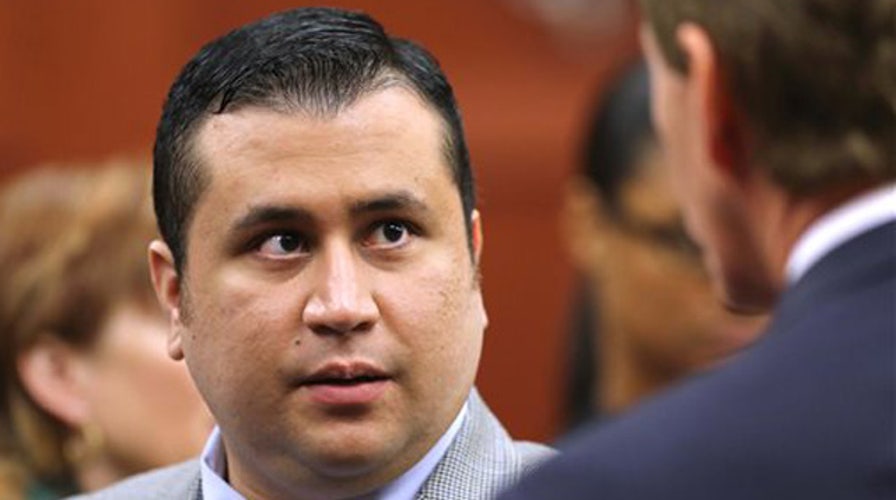Zimmerman day 6 wrap
A sixth day of Jury selection in the trial of George Zimmerman finished up today. Gregg Jarrett has the main highlights
Media coverage of the fatal shooting of 17-year-old Trayvon Martin by George Zimmerman took center stage in the trial of the Florida neighborhood watch captain on Tuesday as attorneys grilled prospective jurors about their knowledge of the case for a seventh day.
Potential jurors were repeatedly asked about which media outlets they turned to for news and whether they thought coverage of the February 2012 shooting had been biased.
“I know that the media is not always accurate,” said one potential juror known as Juror H-69, a pregnant woman in her late 20s. “My sense is that they are trying to get the news out … it would be impossible for them to have all the information that happened.”
SPECIAL COVERAGE: ZIMMERMAN TRIAL
Prosecutors and defense attorneys are seeking a pool of 40 potential jurors who have been screened for any influence of pretrial publicity before moving to a second round of questioning. By Monday, they had interviewed 49 potential jurors over the past week. They must narrow the pool to six jurors and four alternates.
On Monday, Judge Debra Nelson asked four more potential jurors back for further questioning, raising to 32 the number of candidates asked to return. Of those asked to return, more than two-thirds are white. The pool also is overwhelmingly female and skews middle-aged.
Those who are picked for the jury will have their names kept private for at least some time after the trial, Nelson ruled Monday. The judge granted a defense motion to keep information on the jurors confidential after the trial, but she said she would wait to decide for how long.
One potential juror questioned Monday was a middle-aged white woman known as Juror H-13, who described the protests that erupted nationwide over the case as unsettling and speculated that there could be further marches in Sanford if Zimmerman isn't convicted of second-degree murder. The jury candidate, who said she has a biracial grandson, also said she was unsure whether Zimmerman, who identifies himself as Hispanic, racially profiled Martin, a black teen, because it was dark and Martin was wearing a hoodie, possibly making it difficult to determine his race.
Zimmerman was driving through the gated community where he lived when he spotted Martin walking back from a convenience store. Zimmerman called a nonemergency police number, followed Martin and at some point there was a fight between them that left Martin dead.
Zimmerman, 29, is pleading not guilty, claiming self-defense.
When asked if she thought it was wrong that Zimmerman ignored a police dispatcher's advice not to follow Martin, Juror H-13 answered "yes."
Separately, Judge Nelson must still decide whether to allow voice identification experts to testify at trial about screams captured on 911 calls. Voice recognition experts were hired by lawyers and news organizations to analyze the calls, which were made by neighbors during the confrontation between Martin and Zimmerman. Thus far, the experts have reached mixed conclusions about whether they belong to the teen or the neighborhood watch volunteer. Defense attorneys don't want the experts to testify.
After potential jurors went home on Monday, Nelson listened to testimony from defense voice-recognition expert James Wayman who discounted methods used by two prosecution experts. One expert said in a report that the screams came from Martin and the other expert ruled out Zimmerman during testimony at a pretrial hearing. Wayman also doubted the screams came from just one person and said the 911 call was just too small a sample from which to draw conclusions. Wayman said he was "baffled" by the methodology of one of the experts.
"That is not enough data ... to do any reliable estimation of who the speaker is," Wayman said.
Testimony from audio experts is expected to continue through jury selection this week.
The Associated Press contributed to this report.


